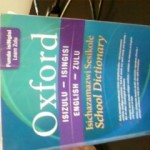A client asked me this question recently. And I told him yes.
For those who have forgotten their school grammar lessons, coordinating conjunctions are those useful joining words: for, and, nor, but, or, yet and so. Many people have been taught that these words are used only to join clauses together.
Yet, according to my trusty source (Graham King’s ‘Collins Improve Your Grammar’): ‘Sometimes, for effect, they (coordinating conjunctions) can start a sentence’.
Nor is this an example of a modern trend. Pick up Lewis Carroll’s ‘Through the Looking Glass’ and read the first chapter. There is a page in which Carroll starts no fewer than six sentences with ‘and‘, three of them consecutively.
So why would you choose to start a sentence in this way? To my mind, it is an effective way of emphasizing the conjunction above the other elements of the sentence. For example, read the following sentences:
-
‘We produce quality garments and our prices are great’
‘We produce quality garments. And at great prices’
Both phrases say the same thing and are grammatically correct but, by making the conjunction stand out, the second does a better job of highlighting both benefits. However, in the first phrase the benefits get blended together so that they seem like two parts of the same thing – the message is diluted.
And I believe that it is subtle stylistic devices like this that make some advertising more effective than others.
But what do you think? Do you keep your ‘ands’ tucked safely away inside your sentences? Or do you agree that a big ‘but’ should sometimes take centre stage?
PS. Did you notice I had used all seven conjunctions to begin most of the sentences above?
Dictionary image shared by Priny under licence (CC Attribution Share-Alike 3.0). Link not available at time of writing.

The word ‘and’ is only very occasionally used to start a sentence and generally we find it prefixed with speech marks, so as to give reason to the capital ( “And ………. ” ).
As for the first example of the use ‘ and ‘ , look carefully at the inverted commas and ask yourself whether or not this sentence would be better if it were in speech marks.
My opinion is that the sentence smacks of a sales pitch from one individual to another, as if the two were in conversation.
As for the second sentence, it is not grammatically correct in relation to a sentence that is so short.
” We produce garments of quality at great prices “. No misuse of the ‘and ‘ and also please note that the wording ‘garments of quality’ puts the emphasis back into the vocabulary surrounding the article for sale.
Please don’t get me wrong, but I detest modern versions of anything that attempt to fix old things that were not broken in the first place.
Look at my last sentence and tell me (in light of your statements) if it is therefore correct to put a comma in front of the word ‘but’?
Hi Heetel
I know where you’re coming from with the sales pitch thing, and my client was unsure for the same reason, I think.
Sorry, which sentence did you mean with this comment? ‘As for the first example of the use ‘ and ‘ , look carefully at the inverted commas and ask yourself whether or not this sentence would be better if it were in speech marks.’
The second sentence is grammatically correct IF you accept sentence fragments as grammatically correct, so we’re both right, really. Charles Dickens was a fan of fragments.
Also, I would argue that beginning sentences with conjunctions is not a new attempt to patch something up. As I said, Lewis Carroll frequently used ‘and’ to start a sentence.
I believe that it is OK to bend (and sometimes break) rules of grammar to achieve a stylistic effect (which may be to ‘hype’ up sales copy). Jane Austen’s use of speech marks were completely unique and encompassed thoughts as well.
And yes (sorry, I’m doing it again), its conventional to put a comma before a conjunction as far as I’m aware, so your sentence is spot on.
Please clarify about the speech marks and the sentence you were referring to, because I’m not 100% sure what you meant.
Thanks for commenting, I appreciate it!
Thanks for your comment. There ate no publications at present, but I do have some on the pipeline and am currently researching this area. What kind of publication would you be interested in?
Regards
Neil